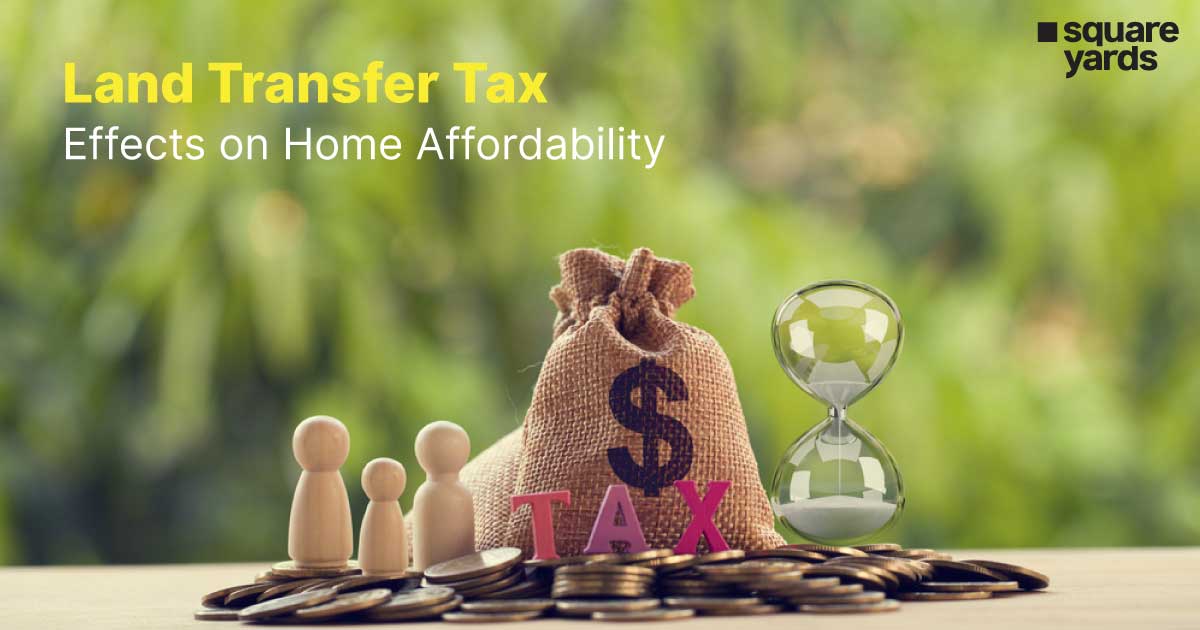In Canada, transferring ownership of real estate or other property is subject to fees or taxes levied by each province. The prices, however, will differ significantly between provinces; some would charge tens of thousands of dollars, while others will charge so little that some may consider them to be pocket change. Depending on the market you’re in, land transfer taxes will have varying effects on how affordable homes are. The land transfer tax is something that some people detest. For others, it’s just one more little expense added to their final total. Here, we’ll examine how the Canadian land transfer tax affects home affordability while examining the greatest and worst places for Canadians to buy a property.
Top 5 Most-Taxed Real Estate Markets
Given below is a detailed overview of the top 5 most taxed real estate markets in Canada:
1. Vancouver, British Columbia
It should come as no surprise that the most expensive west coast city in Canada has the highest real estate taxes. Although buyers in Vancouver only pay provincial taxes, their purchase will still incur a costly $20,076 in property transfer tax, or 1.8% of the overall cost, due to the high average home price of $1,103,803. The following sliding part scale is used to compute the property transfer tax structure in British Columbia:
-
- $0 – $200,000 = 1%
- $200,001 – $2,000,000 = 2%
- $2,000,001 – $3,000,000 = 3%
- +$3,000,000 = 2%
2. Toronto, Ontario
Not only do Torontonians have to contend with the fastest-growing home prices in the country, they’re also the only city to absorb a double-whammy, taxed in full at both the provincial and municipal level; even factoring in generous rebates for first-timers ($4,000 from the province for properties above $368,000 and $4,475 from the City of Toronto), those paying the average Toronto home price of $805,320 will be on the hook for $16,687, accounting for 2.1% of their home purchase price. Without the refund, recurring purchasers in Big Smoke will have to pay an additional $25,162, or 3.1% of the total cost of purchasing a property. The breakdown of the LTT tax structure in Ontario is as follows:
-
- $0 – $368,333 – Tax Rebate for FTHB (full) (0.5% for repeat buyers)
- $368,334 – $400,000:- 1.5%
- $400,000 – $2,000,000:- 2%
- $2,000,000 +:- 2.5%
The tax system in the City of Toronto is similar to this one, except for the $250,000–$400,000 area, where 1.5% is imposed.
3. Victoria, British Columbia
A buyer in Victoria paying the average price of a home ($713,485) would pay $12,270 in taxes, or 1.7% of the total cost of the property, according to the BC taxation model. This is unchanged for returning customers in British Columbia, as there is no first-time buyer’s incentive.
4. Abbotsford, British Columbia
A buyer paying the average $538,999 price of a home in Abbotsford would pay $8,780 in property transfer tax, or 1.6% of the purchase price, according to the BC taxation model. This is unchanged for returning customers in British Columbia, as there is no first-time buyer’s incentive.
5. Kelowna, British Columbia
A buyer paying the average Kelowna property price of $532,972 would pay taxes totaling $8,659, or 1.6% of the purchase price, according to the BC taxation model. This is unchanged for returning customers in British Columbia, as there is no first-time buyer’s incentive.
Impact of Land Transfer Tax on Home-Buying Decisions
Does the Canadian land transfer tax affect the way you are purchasing a home? In a recent survey, over 25% of Canadians said that the land transfer tax influenced their choice to enter the real estate market. On behalf of RE/MAX Canada, Leger conducted this survey. Young Canadians are primarily impacted by the fee, as evidenced by the fact that 40% of Generation Z and 35% of millennials stated the Canadian land transfer tax affected their decision to buy a home. Older generations, such as baby boomers (21%) and Generation X (26%), were less affected by the penalty.
Wrapping Up
In the end, this has made housing less affordable at a time when many younger people are finding that owning a home is out of reach. According to recent data, detached home sales in the York Region increased by over 100% from the first quarter to the second quarter of 2023. Among the causes? In this segment of the housing market, there is no municipal land transfer tax for buyers. Policymakers are looking into other ways to support homebuying prospects since several factors are driving younger families out of the housing market, one of which is the Canadian land transfer tax.
You May Also Read
|
Guide Municipal Accommodation Tax in Canada |
|
|
Know About Toronto property tax |
|
|
All About Income Tax in Canada |
|
|
Understand Real Estate Tax in Canada |
Frequently Asked Questions (FAQs)
There are scenarios in which land transfer taxes can be circumvented, like buying a recently constructed house or transferring ownership to a parent-child lineal descendent.
The land transfer tax amount of $500,000 in Ontario will be approximately $6,475.
The provinces that are exempt from the land transfer tax are Alberta and Saskatchewan.
The cheapest land tax in Canada is in four cities, which are Vancouver, Abbotsford, Kelowna, and Victoria. How do I avoid land transfer tax in Canada?
How much is land transfer tax on $500,000 in Ontario?
Which provinces have no land transfer tax?
Where is the cheapest land tax in Canada?



































